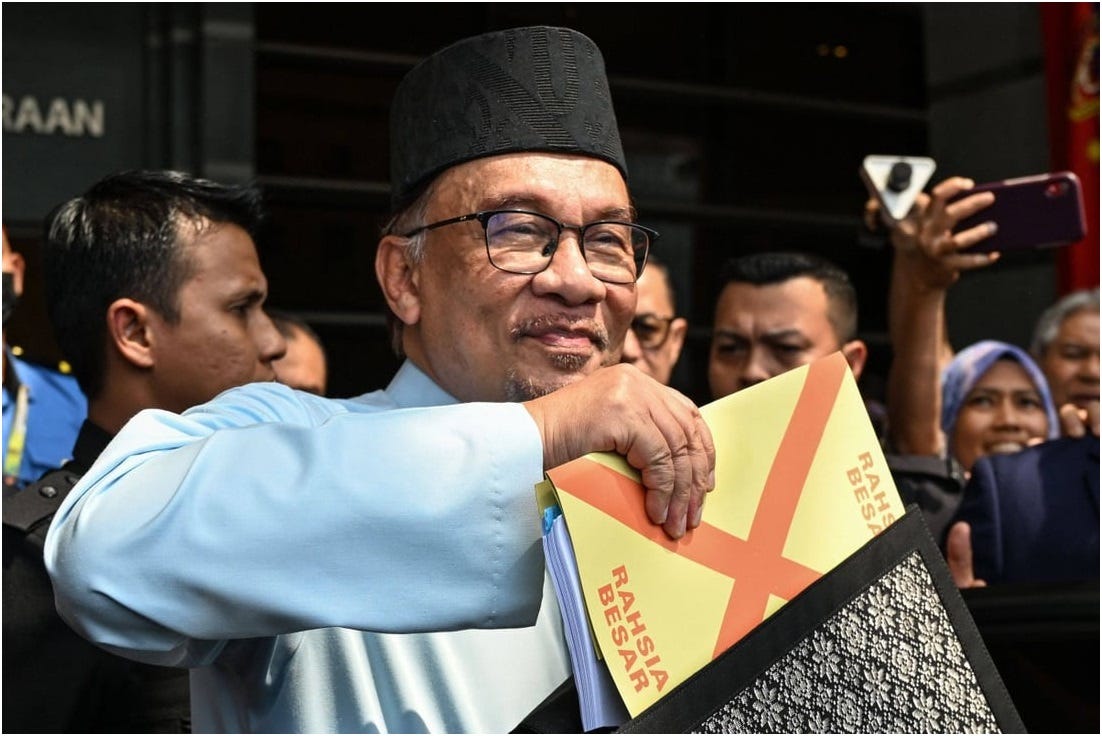Malaysia's Budget 23: Another Missed Opportunity
New government’s nerve fails in the face of political expediency
By: Ramesh Chander, Murray Hunter, and Lim Teck Ghee
Various excuses can be made for Malaysia’s 2023 budget – mainly status quo ante, part recovery, and part election-oriented– produced by the new government, which is kicking the can of fiscal and institutional reform further down the road.
In his budget presentation, Prime M…
Keep reading with a 7-day free trial
Subscribe to Asia Sentinel to keep reading this post and get 7 days of free access to the full post archives.

